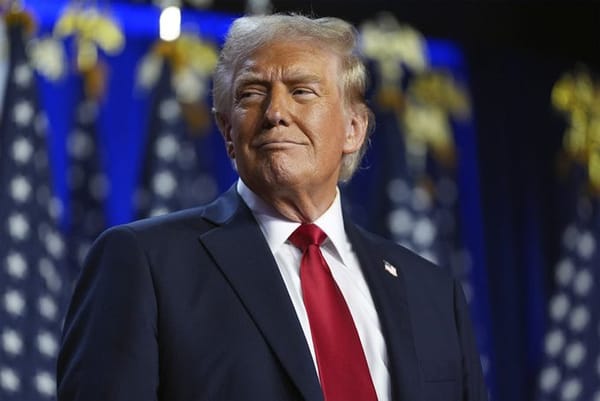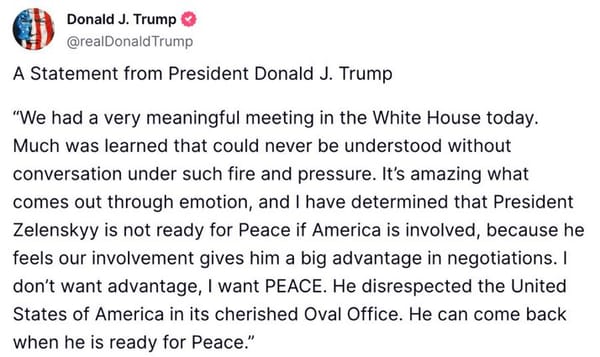Trump's 100-Day Rally: Celebration Amid Controversy
On April 29, 2025, President Donald Trump took the stage at Macomb Community College’s Sports and Expo Center in Warren, Michigan, to celebrate the first 100 days of his second term in office. The rally, billed by the Trump campaign as a “celebration of the most successful and monumental first 100 days of any administration in history,” drew thousands of supporters chanting “USA, USA, USA!” while also attracting protesters critical of the administration’s policies. The event, held in a key battleground state that Trump won in both 2016 and 2024, was a symbolic milestone, reflecting both the achievements touted by the administration and the deep divisions in public opinion about its performance.
The first 100 days of a presidency are often seen as a benchmark for setting the tone and agenda for the term. For Trump, this period has been marked by a flurry of executive actions, bold policy shifts, and a combative stance against institutions perceived as opposing his vision. From dismantling Diversity, Equity, and Inclusion (DEI) programs to expanding oil and gas production and targeting universities like Harvard, Trump’s administration has moved swiftly to reshape the federal government and American society. However, polls indicate growing public skepticism, particularly regarding economic management, as tariffs and other policies have sparked concerns about inflation and job losses. This article explores the Warren rally, the key policies of Trump’s second term, the controversies surrounding them, and the broader implications for the nation.
The Warren Rally: A Celebration of Achievements
The choice of Warren, Michigan, for Trump’s 100-day rally was strategic. Macomb County, a working-class stronghold, has been a bellwether for Trump’s political success, having supported him in both of his victorious presidential campaigns. The rally, held at 6 p.m. on April 29, was the president’s first major public event since his inauguration on January 20, 2025. Supporters lined up hours in advance, braving chilly spring weather to hear Trump speak at the Sports and Expo Center, a venue he visited twice during the 2024 campaign, including a rally just four days before Election Day.
Trump’s speech was characteristic of his campaign-style rhetoric, blending self-congratulation with grievances about his critics. He hailed his administration’s first 100 days as “the most successful of any administration in the history of our country,” citing achievements such as securing the border, reducing inflation, and restoring American manufacturing. The White House had earlier announced that inflation had cooled, consumer prices had dropped month-over-month for the first time in three years, and gas prices were lower nationwide. Trump also touted the creation of the Department of Government Efficiency, which he claimed was rooting out “waste, fraud, and abuse” in the executive branch.
The rally wasn’t just a victory lap. Trump used the platform to announce that Selfridge Air National Guard Base, located near Detroit, would receive 21 F-15EX fighter jets, easing fears of the base’s potential closure. This announcement was met with cheers from the crowd, particularly from local leaders and workers tied to Michigan’s defense industry. “We’re bringing jobs back to Michigan, and we’re making our military stronger than ever,” Trump declared, reinforcing his commitment to economic and military revitalization.
Supporters at the rally were enthusiastic, with many echoing the administration’s narrative of a revitalized America. “President Trump has delivered on his promises,” said Mike Cox, a Republican candidate for Michigan governor, who attended the event. “In just 100 days, he’s improved our nation, and Michigan is proud to host this celebration.” The Republican National Committee’s website described the rally as a “legendary start” to Trump’s presidency, emphasizing his prolific use of executive orders—137 in total, more than any president since Franklin D. Roosevelt in a similar period.
Yet, outside the venue, a different scene unfolded. Protesters gathered at the corner of Hayes and 12 Mile Roads, decrying what they called the “disruption and hardship” caused by Trump’s policies. Their signs criticized everything from tariffs to immigration crackdowns, reflecting the polarized sentiment surrounding the president’s agenda. The presence of both fervent supporters and vocal detractors underscored the broader national divide, a theme that has defined Trump’s political career.
Economic Management: A Point of Contention
While Trump’s rally focused on economic successes, public opinion polls tell a more complicated story. A series of surveys released in late April 2025 revealed significant disapproval of Trump’s handling of the economy, which voters consistently cite as their top concern. The Guardian reported that a majority of Americans “strongly disagree” with Trump’s economic performance, pointing to the “chaotic imposition of tariffs” as a major driver of economic unease. These tariffs, applied to nearly every nation except Russia, have disrupted global trade, increased costs for American businesses, and led to layoffs in industries like Michigan’s auto sector.
Michigan Governor Gretchen Whitmer, a Democrat who met with Trump in the Oval Office three weeks before the rally, has been vocal about the tariffs’ impact. She noted that 20% of Michigan’s economy is tied to the auto industry, which is facing higher costs and supply chain disruptions. “Auto companies are stockpiling parts and laying off workers,” Whitmer said in a speech. “Suppliers are delaying expansions because of the uncertainty.” Her comments highlight a broader concern: while Trump’s tariffs aim to protect American industries, they may be causing short-term pain for workers in states like Michigan.
Trump’s economic agenda also includes a push to expand fossil fuel production, particularly oil and gas, to lower energy costs. He has vowed to end electric vehicle (EV) “mandates” and eliminate the $7,500 EV tax credit, arguing that these policies harm Michigan’s traditional auto industry. “We’re going to save the Michigan auto industry from extinction,” Trump said at a November 2024 rally in Novi, Michigan. Since taking office, his administration has taken steps to increase domestic oil and gas production, including loosening regulations on drilling and encouraging coal extraction. Gas prices have indeed fallen, as noted by the White House, but critics argue that these policies undermine efforts to address climate change and may not deliver long-term economic stability.
The economic picture is further complicated by rising costs in other areas. For example, the price of eggs reached a record high of $6.22 per dozen in March 2025, reflecting supply chain issues and inflation pressures that have persisted despite Trump’s claims of progress. The administration’s Department of Government Efficiency, led by allies like Elon Musk, has slashed federal jobs and agencies, aiming to reduce government spending. However, these cuts have sparked concerns about their impact on public services and federal workers, adding to the public’s mixed feelings about Trump’s economic stewardship.
Dismantling DEI Programs: A Cultural Flashpoint
One of the most controversial aspects of Trump’s first 100 days has been his administration’s aggressive campaign against Diversity, Equity, and Inclusion (DEI) programs. Trump has signed executive orders to eliminate DEI initiatives in the federal government and among federal contractors, describing them as “discriminatory” and “woke lunacy.” The administration has also tied federal funding to compliance with these directives, with federal election officials suggesting that states must pledge to curb DEI programs to receive $15 million in election security funding.
This anti-DEI push extends beyond government to academia and the private sector. The administration has withheld funding from universities accused of tolerating “anti-Semitic behavior” or promoting DEI-focused research. Trump’s rhetoric on this issue has been particularly fiery, with promises to “get critical race theory and transgender insanity the hell out of our schools” and to “keep men out of women’s sports” starting on day one. These policies resonate with his base but have drawn sharp criticism from civil rights groups and educators, who argue that they undermine efforts to address systemic inequality and protect marginalized communities.
The administration’s actions against DEI have also sparked legal battles. A federal judge temporarily blocked an executive order banning DEI programs in public K-12 schools, citing potential violations of free speech and equal protection. Meanwhile, the Pentagon’s Women, Peace, and Security program, a Trump-era initiative from his first term, was abruptly terminated by Defense Secretary Pete Hegseth, who dismissed it as a “woke divisive” policy. This move drew criticism for erasing a program that had bipartisan support and aimed to promote gender equity in military and security operations.
The Harvard Feud: A Battle Over Higher Education
Perhaps the most high-profile controversy of Trump’s first 100 days is his administration’s feud with Harvard University. The elite institution has become a lightning rod for Trump’s broader war on higher education, particularly over issues of antisemitism and DEI. In March 2025, the administration launched a review of $9 billion in federal funding to Harvard, accusing the university of failing to address antisemitism on campus. It issued a sweeping list of demands, including ending DEI programs, banning masks on campus, and revising student disciplinary measures.
When Harvard resisted, the administration escalated its tactics. In April, it froze $2.3 billion in federal research funding, prompting Harvard to file a lawsuit accusing the Trump administration of “unlawfully interfering” in its affairs. The university argued that the funding cuts threaten critical research, hinder scientific talent development, and undermine U.S. global competitiveness. “Each suspended research project hinders the cultivation of scientific talent that drives the United States’ global competitiveness in research and development,” the lawsuit stated.
The administration also asked the Internal Revenue Service to revoke Harvard’s tax-exempt status, citing the university’s handling of antisemitism and DEI practices. Legal experts have questioned the validity of this move, noting that there is no evidence Harvard has violated tax laws prohibiting certain political activities. In response to the pressure, Harvard announced on April 29 that it was renaming its Office for Equity, Diversity, Inclusion, and Belonging to the Office of Community and Campus Life. The university’s former chief diversity officer, Sherri Ann Charleston, was retitled as chief community and campus life officer, signaling a shift in focus from demographic-based diversity to broader community engagement.
Harvard’s lawsuit and partial concessions highlight the tension between academic autonomy and political pressure. The administration’s demands, such as excluding international students deemed “hostile to American values” or reforming academic departments accused of “ideological capture,” have raised alarms about government overreach. Other universities, like Northwestern, have faced similar funding cuts, suggesting that Trump’s campaign against higher education is far from over.
Oil and Gas Expansion: Energy vs. Environment
Trump’s commitment to expanding oil and gas production has been a cornerstone of his second-term agenda, aligning with his promise to lower energy costs and boost American energy independence. Since taking office, he has signed executive orders to loosen regulations on fossil fuel extraction, encourage coal production, and roll back environmental protections. These moves have been cheered by industries and workers in states like Texas and Pennsylvania but criticized by environmentalists and climate scientists.
In Michigan, the push for fossil fuels is tied to Trump’s pledge to protect the auto industry by ending EV mandates. He argues that EVs, supported by Biden-era policies like the $7,500 tax credit, threaten traditional manufacturing jobs. However, the transition away from EVs has raised concerns about Michigan’s competitiveness in the global auto market, where electric and hybrid vehicles are gaining traction. Local leaders have also expressed worries about the future of clean energy tax credits, which have supported manufacturing and job growth in the state.
Nationally, the focus on oil and gas has reignited debates about climate change. Critics argue that Trump’s policies reverse progress on reducing carbon emissions and jeopardize international commitments like the Paris Agreement. Supporters, however, point to falling gas prices and increased energy production as tangible benefits for American consumers. The long-term implications of this approach—both economically and environmentally—remain a point of contention.
Public Sentiment: A Divided Nation
The Warren rally and the policies it celebrated reflect a nation deeply divided. Trump’s supporters view his first 100 days as a triumph of bold leadership, delivering on campaign promises to secure the border, boost the economy, and dismantle progressive policies. His prolific use of executive orders—137 in total—demonstrates a willingness to act decisively, bypassing a gridlocked Congress. Initiatives like the Department of Government Efficiency and the Selfridge fighter jet announcement resonate with voters who prioritize economic opportunity and national strength.
However, polls paint a less rosy picture. The Guardian reported that a majority of Americans disapprove of Trump’s performance, with economic management being a particular sore point. The Washington Post noted “widespread disapproval” of his actions, driven by concerns about tariffs, inflation, and job losses. On X, posts from outlets like Reuters and MobilePunch highlighted the “economic and political tumult” of Trump’s presidency, with some users expressing skepticism about his focus on military expansion and trade policy over broader economic stability.
Protesters at the Warren rally embodied this discontent, criticizing the “real impacts of disruption and hardship” caused by Trump’s policies. Their presence, though smaller than the throngs of supporters, underscored the challenges Trump faces in unifying a polarized electorate. Michigan, a state that flipped from Trump in 2016 to Biden in 2020 and back to Trump in 2024, remains a microcosm of this divide, with implications for the 2026 midterms and beyond.
Looking Ahead: The Next 100 Days and Beyond
As Trump moves into the next phase of his presidency, the controversies of his first 100 days are likely to intensify. His economic policies, particularly tariffs, will face scrutiny as their impacts on jobs and prices become clearer. The push to expand oil and gas production will continue to clash with environmental priorities, potentially alienating younger voters and urban constituencies. The anti-DEI campaign, while energizing Trump’s base, risks further polarizing an already divided nation, especially if legal challenges mount.
The feud with Harvard and other universities could escalate, with broader implications for academic freedom and federal funding. Trump’s threats to revoke tax-exempt statuses or impose accreditation penalties signal a willingness to use federal power aggressively, raising questions about the balance between accountability and overreach. Meanwhile, his focus on military and manufacturing investments, as seen in the Selfridge announcement, may bolster support in industrial heartlands like Michigan but do little to address coastal or urban concerns.
Politically, the Warren rally served as a reminder of Trump’s enduring appeal in key swing states. Michigan, with its electoral significance and upcoming 2026 races for Senate and governor, will remain a battleground. Trump’s ability to maintain his base’s enthusiasm while addressing broader public skepticism will be critical to his administration’s success.
Conclusion
The Warren, Michigan, rally on April 29, 2025, was more than a celebration of President Donald Trump’s first 100 days in office—it was a microcosm of his presidency’s triumphs and challenges. For supporters, the event showcased a leader delivering on promises to revitalize the economy, strengthen the military, and dismantle progressive policies. For critics, it highlighted the economic uncertainty, cultural divisiveness, and institutional conflicts that have defined Trump’s second term.
From tariffs to DEI bans to the Harvard feud, Trump’s policies have sparked intense debate about the direction of the country. While his administration touts lower gas prices and job creation, polls reveal deep public unease about economic management and the broader impact of his agenda. As Trump looks to the next 100 days, the challenge will be to bridge the gap between his base’s fervor and a nation grappling with the consequences of his ambitious—and controversial—vision.
The rally in Warren was a moment of celebration, but it was also a reminder of the work ahead. In a polarized America, Trump’s ability to navigate these controversies will shape not only his presidency but the future of the nation he leads.








